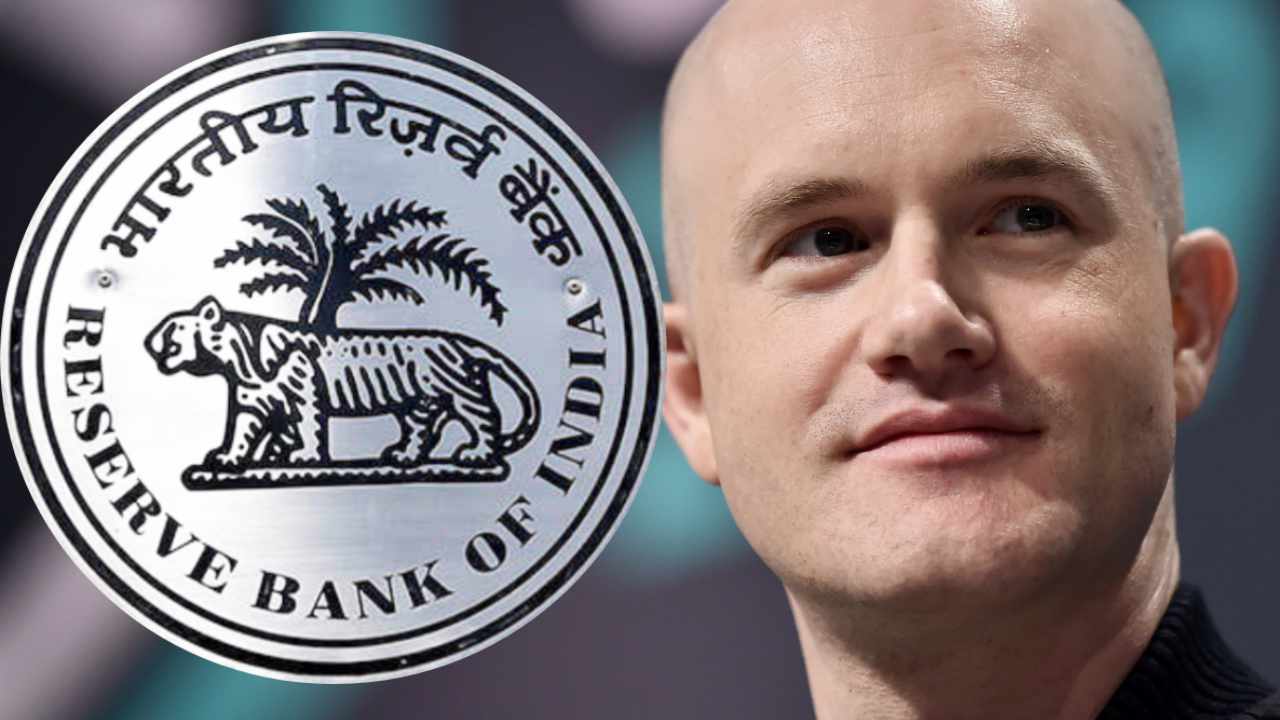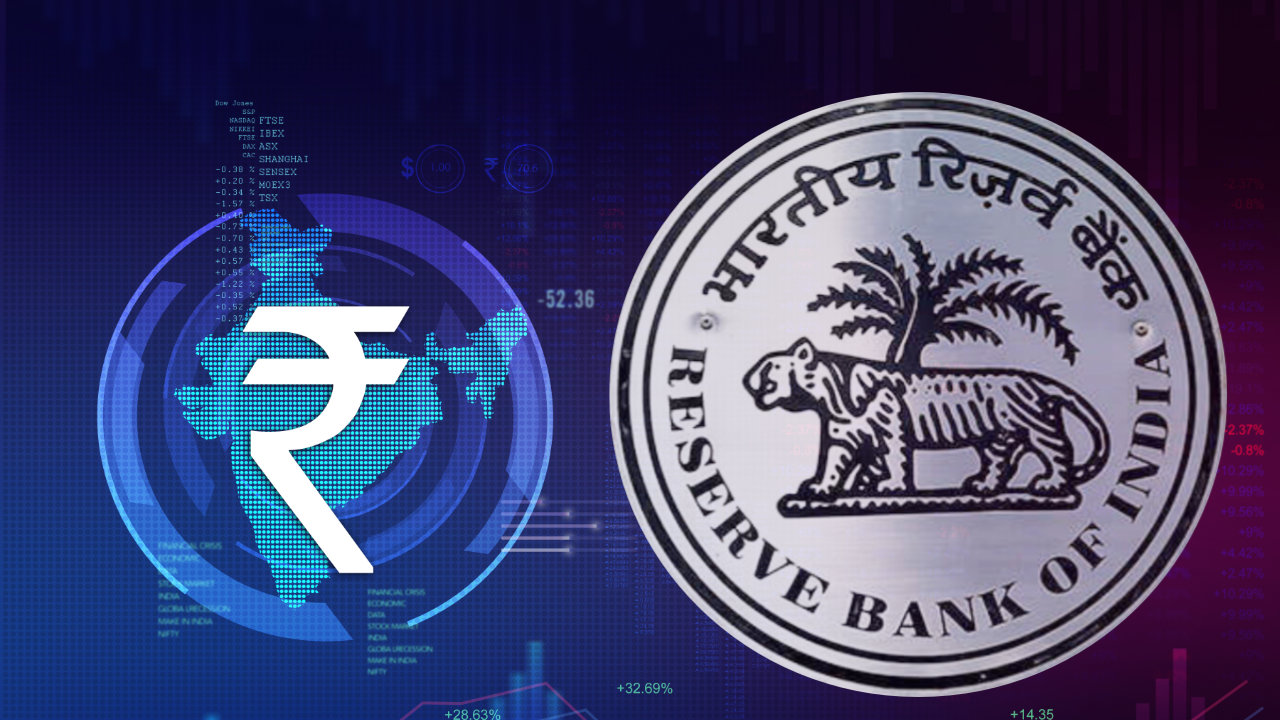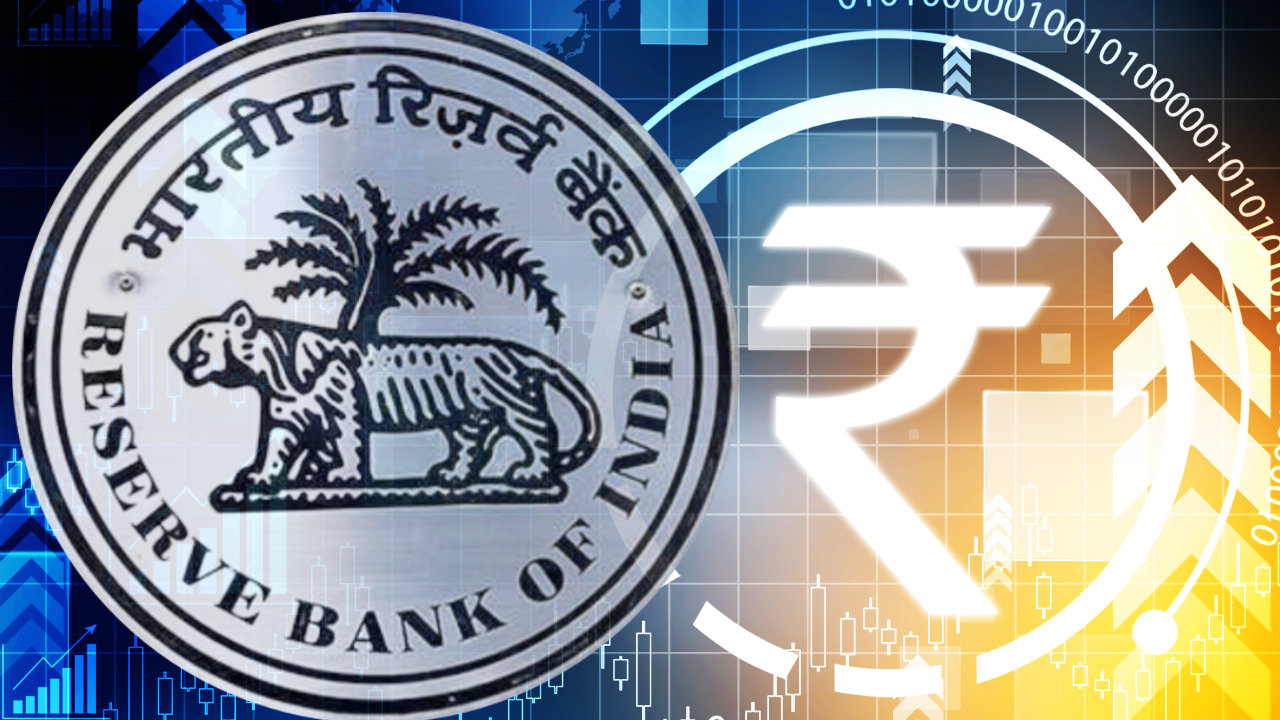 The Nasdaq-listed cryptocurrency exchange Coinbase has revealed that it halted operation in India a few days after launch due to “informal pressure” from the country’s central bank, the Reserve Bank of India (RBI), says CEO Brian Armstrong. Coinbase Shares Experience in India Coinbase Global provided an update on its Indian operation during the company’s earnings […]
The Nasdaq-listed cryptocurrency exchange Coinbase has revealed that it halted operation in India a few days after launch due to “informal pressure” from the country’s central bank, the Reserve Bank of India (RBI), says CEO Brian Armstrong. Coinbase Shares Experience in India Coinbase Global provided an update on its Indian operation during the company’s earnings […]
"I guess we have a concern that [the Reserve Bank of India] may be actually in violation of the Supreme Court ruling," said Coinbase CEO Brian Armstrong.
Just three days after debuting in the Indian market, United States-based crypto exchange Coinbase abruptly stopped using United Payments Interface (UPI), the most popular payment service in the region. Coinbase CEO Brian Armstrong later revealed that the service disruption was due to an “informal pressure” from India’s central bank.
During Coinbase’s 2022 Quarterly Earnings call, Armstrong spoke about the company’s global expansion plans while acknowledging Coinbase’s role in starting the conversation with regulators related to crypto adoption. When asked about the impact of the recent disruption related to offering payment services in India, Armstrong stated:
“So a few days after launching, we ended up disabling UPI because of some informal pressure from the Reserve Bank of India (RBI), which is kind of the Treasury equivalent there.”
While highlighting the Supreme Court’s ruling from March 2020, which forbids RBI from banning banks to deal with crypto business, Armstrong warned about certain government entities — including the RBI — “who don't seem to be as positive on it.”
The CEO revealed Coinbase’s aggressive strategy for international expansion that involves launching services in new jurisdictions and work with the regulators based on their reactions to Coinbase’s presence in the region. Highlighting India’s attempt to impose a shadow-ban on crypto businesses, Armstrong added:
“Basically they're applying soft pressure behind the scenes to try to disable some of these payments which might be going through UPI. I guess we have a concern that they may be actually in violation of the Supreme Court ruling.”
Despite the evident regulatory hurdles, Coinbase prepares for a relaunch in the region by introducing other modes of payment as it tries to cater to the high demand of crypto investors. Armstrong concluded:
“In most places in the free world and in democracies, crypto is going to eventually be regulated and legal. And the way that we push the conversation forward is by taking action.”
On April 1, India introduced its first set of crypto laws that requires crypto investors to pay 30% tax on unrealized crypto gains. The move, however, negatively impacted the crypto ecosystem as trading volumes plummeted and in-house businesses shifted away into friendlier jurisdictions.
Related: Binance to drive crypto and blockchain awareness among Indian investors
Eyeing on the same pool of untapped market, crypto exchange Binance launched three key educational initiatives to fast-track educating Indian investors and students about the cryptocurrency and blockchain ecosystem.
Along with the announcement, Binance highlighted that the lack of education among Indian regulators and policymakers currently hinders the widespread adoption of crypto.
 Reserve Bank of India (RBI) Deputy Governor T. Rabi Sankar has outlined the implications of India issuing a central bank digital currency, the digital rupee. ”I think central banks would go about it in a very calibrated, graduated manner, assessing impact all along the line,” he explained. RBI’s Deputy Governor Discusses Indian Central Bank Digital […]
Reserve Bank of India (RBI) Deputy Governor T. Rabi Sankar has outlined the implications of India issuing a central bank digital currency, the digital rupee. ”I think central banks would go about it in a very calibrated, graduated manner, assessing impact all along the line,” he explained. RBI’s Deputy Governor Discusses Indian Central Bank Digital […] A deputy governor of India’s central bank, the Reserve Bank of India (RBI), likens cryptocurrencies to Ponzi schemes, emphasizing that they cannot be regulated. “It would be futile to regulate cryptocurrencies,” he claims, stating that they should be banned. RBI’s Deputy Governor Sees Crypto Ban as ‘the Most Advisable Choice Open to India’ A deputy […]
A deputy governor of India’s central bank, the Reserve Bank of India (RBI), likens cryptocurrencies to Ponzi schemes, emphasizing that they cannot be regulated. “It would be futile to regulate cryptocurrencies,” he claims, stating that they should be banned. RBI’s Deputy Governor Sees Crypto Ban as ‘the Most Advisable Choice Open to India’ A deputy […] The Indian government has announced the upcoming launch of the country’s central bank digital currency. The digital rupee will be issued by the Reserve Bank of India (RBI) in the financial year 2022-23, Indian Finance Minister Nirmala Sitharaman said during her budget speech. RBI’s Digital Currency, the Digital Rupee, Coming Soon India’s finance minister, Nirmala […]
The Indian government has announced the upcoming launch of the country’s central bank digital currency. The digital rupee will be issued by the Reserve Bank of India (RBI) in the financial year 2022-23, Indian Finance Minister Nirmala Sitharaman said during her budget speech. RBI’s Digital Currency, the Digital Rupee, Coming Soon India’s finance minister, Nirmala […]
The Cryptocurrency and Regulation of Official Digital Currency Bill does not appear as one of the 15 bills the government body will consider during its next session.
The latest bulletin covering the agenda for India's lower house of parliament includes “a lecture on understanding cryptocurrency” and its economic impact.
According to a Monday publication from the Lok Sabha, the Parliamentary Research and Training Institute for Democracies group within the government has organized a training evening for lawmakers on Feb. 2 regarding crypto and its effects on the Indian economy. In addition, the legislative business calendar for the lower house of parliament no longer includes a bill which could potentially ban crypto in the country.

The Cryptocurrency and Regulation of Official Digital Currency Bill does not appear as one of the 15 bills the government body will consider when it convenes for its Budget Session. Previously published texts of the bill propose banning “all private cryptocurrencies” in India except for assets aimed at promoting “the underlying technology of cryptocurrency and its uses.”
The proposed legislation has popped up on the country’s parliamentary agenda multiple times since the Indian supreme court overturned a blanket ban on crypto in 2020 that had been imposed by the central bank. The Reserve Bank of India may also be moving forward soon with trials of a central bank digital currency — a digital rupee — but at the time of publication officials have not announced a test run for the CBDC.
Related: India to regulate, not ban, crypto: Cabinet documents
Many reports from local media outlets have suggested that some lawmakers in India are seeking different legislative paths to handle the growing crypto market, from proposing projects not being legally allowed to operate in the country to taxing crypto earnings differently. In October, officials from the Finance Ministry reportedly considered implementing a legal framework that could treat crypto more like a commodity than currency.
The Budget Session officially started today, with both Houses in the Indian Parliament planning to meet in separate shifts to fight the spread of COVID-19. The session is expected to run until May.

The India International Exchange is reportedly looking to explore digital asset-based products despite local uncertainty.
Despite the ongoing uncertainty about cryptocurrency regulation in India, local financial firms are backing new ventures aiming to launch Bitcoin (BTC) exchange-traded funds (ETF).
Torus Kling Blockchain, a joint venture between Cosmea Financial Holding, a financial firm backed by former Reliance Capital CEO Sam Ghosh, and Kling Trading India, is preparing to launch Bitcoin and Ether (ETH) futures ETFs in India, The Economic Times reported Thursday.
The company has signed a memorandum of understanding with India’s major stock exchange, the India International Exchange (INX), to launch crypto ETFs alongside investment products tracking major metaverse-related companies listed in the United States.
According to the report, Torus Kling Blockchain is planning to set up the ETFs in the Gujarat International Finance Tec-City (GIFT City) by the end of the current fiscal year in India, or by the end of March 2022. The ETFs are subject to approval by India’s International Financial Services Centres Authority (IFSCA) and other regulators, the report notes.
India INX CEO Venkataramani Balasubramaniam said that the stock exchange and GIFT IFSC are looking at “exploring the launch of digital asset-based products” and has already applied with the IFSCA under “regulatory sandbox.”
“This is a part of our product innovation initiative to benchmark offerings with other international financial centers. We will be launching products in these new-age assets in compliance with the prevailing laws after receiving all required post regulatory approvals,” the executive noted.
Cryptocurrencies are a new asset class that is a “tip of the iceberg” of the upcoming fintech innovation and adoption, Torus Kling Blockchain CEO Krishna Mohan Meenavalli said. “Exchange trade products allow trading through regular investment accounts, bypassing the hassle and security concerns of cryptocurrency exchanges,” he said.
In late 2021, India's Securities and Exchange Board reportedly approved Invesco Mutual Fund’s Invesco CoinShares Global Blockchain ETF Fund of Fund, aimed at investing in blockchain industry companies.
Related: Pakistan’s central bank reportedly wants to ban crypto
The news comes amid India INX aggressively extending to other markets, reportedly moving to allow local investors to access trading on Russia’s Moscow Exchange earlier in January. As previously reported, Russian financial giant Sber launched its own blockchain-related ETF tracking Coinbase and Galaxy Digital in late 2021.
 India’s central bank, the Reserve Bank of India (RBI), has warned about multiple risks cryptocurrency poses to the country’s financial stability. “They are also prone to frauds and to extreme price volatility,” the apex bank claims, stressing that “cryptocurrencies pose immediate risks to customer protection and anti-money laundering (AML) / combating the financing of terrorism […]
India’s central bank, the Reserve Bank of India (RBI), has warned about multiple risks cryptocurrency poses to the country’s financial stability. “They are also prone to frauds and to extreme price volatility,” the apex bank claims, stressing that “cryptocurrencies pose immediate risks to customer protection and anti-money laundering (AML) / combating the financing of terrorism […]
While the regulatory environment for cryptocurrencies in India is currently murky, the country has already witnessed an exponential rise in crypto popularity.
The Chairman of the Securities and Exchange Board of India (SEBI), Ajay Tyagi, urged mutual funds to avoid investing in crypto-related assets as the government considers new cryptocurrency rules. Speaking at a press conference on Tuesday, Tyagi advised firms to refrain from investing in funds linked to crypto assets until there is clarity on the policy and regulatory framework.
“Those who have invested in mutual funds, — in companies related to crypto-assets or foreign firms through fund-of-funds (FOF) — my thinking is that till we get clarity on its (crypto's) policy, businesses should not make such investments,” said the SEBI chairman.
While the regulatory environment for cryptocurrency in India is currently murky, the country has already witnessed an exponential rise in its popularity. It's also unclear if crypto investments come with any tax obligations in the country.
Tyagi's remarks come following the recent event involving an asset management firm (AMC), Invesco Mutual Fund. Despite Sebi's approval, it delayed its blockchain fund last month owing to legislative uncertainty.
There have been talks about cryptocurrency being discussed in Parliament during the winter session recently. The talks gained further momentum following a parliamentary standing committee on finance's meeting with cryptocurrency stakeholders to identify possible opportunities and challenges that may occur when it comes to crypto financing and investment.
Related: Institutional managers hold a record $72.3B of crypto — CoinShares
The Indian government had formally planned to introduce the Cryptocurrency and Regulation of Official Digital Currency Bill, 2021, for debate in the parliament during its current winter session. The bill, however, does not appear among the bills that India's lower house will consider as it concludes the winter session.
Meanwhile, Indian Prime Minister Modi has been increasingly vocal regarding cryptocurrencies in 2021. During the recent Sydney Dialogue, Modi urged democratic nations to collaborate in order to make the most of cryptocurrencies and blockchain technology. He also warned against their malicious use.
 India’s central bank, the Reserve Bank of India (RBI), says a basic central bank digital currency (CBDC) model must be adopted initially and tested comprehensively to minimize the impact on the country’s monetary policy and banking system. The Indian apex bank sees several benefits in launching a digital rupee, including “a potential to enhance the […]
India’s central bank, the Reserve Bank of India (RBI), says a basic central bank digital currency (CBDC) model must be adopted initially and tested comprehensively to minimize the impact on the country’s monetary policy and banking system. The Indian apex bank sees several benefits in launching a digital rupee, including “a potential to enhance the […]